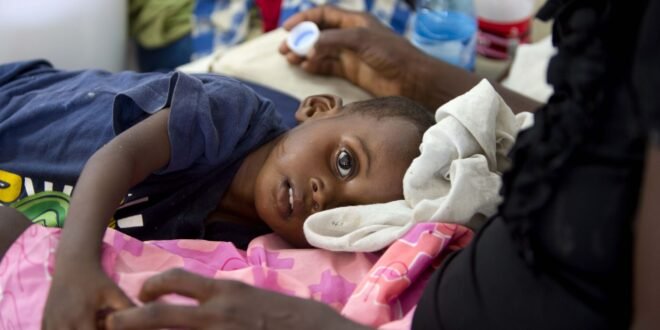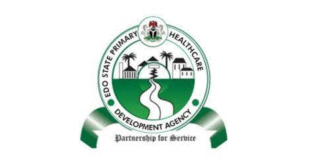Cholera Outbreaks Threaten Millions of Children Across West and Central Africa
As the rainy season begins in West and Central Africa, an estimated 80,000 children are at high risk of contracting cholera. This alarming situation is fueled by active outbreaks in several countries, including the Democratic Republic of the Congo (DRC) and Nigeria. The spread of the disease poses a serious threat of cross-border transmission, putting neighboring nations such as Chad, Republic of Congo, Ghana, Côte d’Ivoire, and Togo at risk. Meanwhile, Niger, Liberia, Benin, the Central African Republic, and Cameroon remain under close surveillance due to their vulnerability.
The situation has been exacerbated by heavy rains, widespread flooding, and high levels of displacement. These factors have created ideal conditions for the rapid spread of cholera, particularly among children who are already facing dire living conditions. According to Gilles Fagninou, the UNICEF Regional Director for West and Central Africa, the lack of access to safe water and proper hygiene is making the crisis even more severe. “Urgent action is needed. This is a matter of survival,” he emphasized.
DRC: A Country on the Brink
The DRC remains the hardest-hit country in the region. As of July, the Ministry of Health reported over 38,000 cholera cases and 951 deaths, with children under five accounting for 25.6% of all cases. This age group is especially vulnerable due to poor hygiene, limited access to clean water, and a higher risk of severe dehydration. The most affected provinces include South Kivu, North Kivu, Haut Katanga, Tshopo, Haut Lomami, Tanganyika, and Maniema.
In Kinshasa, the situation has turned critical. Over the past four weeks, cholera cases have surged sharply following intense rainfall and widespread flooding. The city’s already overwhelmed healthcare system is struggling to cope with the rising number of cases, resulting in an alarming case fatality rate of 8%.
Other Affected Countries
Chad has also reported a growing number of cholera cases. At the Dougui refugee site, approximately 103 kilometers from Abéché near the Sudanese border, 55 suspected cases were recorded, including four deaths. The Ministry of Health confirmed the presence of Vibrio cholerae in two samples collected on July 24. The displaced population, primarily children, lives in extremely precarious conditions marked by overcrowding, lack of clean drinking water, poor sanitation, and limited access to health care.
Nigeria, the second most affected country in the region, reported 3,109 suspected cholera cases and 86 deaths across 34 states as of the end of June. Cholera remains endemic in the country, with recurrent major outbreaks in recent years. In Ghana, 612 cholera cases were reported as of April 28, 2025. In Côte d’Ivoire, 322 cases and 15 deaths were reported as of July 14, 2025. Togo has also seen a rise in cases, with 209 reported cases and five deaths as of June 22, 2025.
UNICEF’s Response and the Need for Support
Since the start of the outbreaks, UNICEF has been working tirelessly to provide lifesaving health and water, hygiene, and sanitation (WASH) supplies to treatment facilities and communities. The organization has also been supporting cholera vaccination campaigns in affected areas and encouraging families to seek timely treatment and improve their hygiene practices. At the same time, UNICEF is stepping up preparedness and response efforts in countries at risk.
To scale up its emergency cholera response across the region over the next three months, UNICEF West and Central Africa urgently requires $20 million. This funding will be used to support health services, WASH initiatives, and risk communication and community engagement programs.
“We are in a race against time, working hand in hand with the authorities to deliver essential healthcare, safe water, and proper nutrition to children already at risk of deadly diseases and severe acute malnutrition,” said Fagninou. “Together with an array of partners, we are strengthening community engagement and extending our reach to remote and underserved areas, making every effort to ensure that no child is left behind.”
 Info Malang Raya Its All About World News
Info Malang Raya Its All About World News



